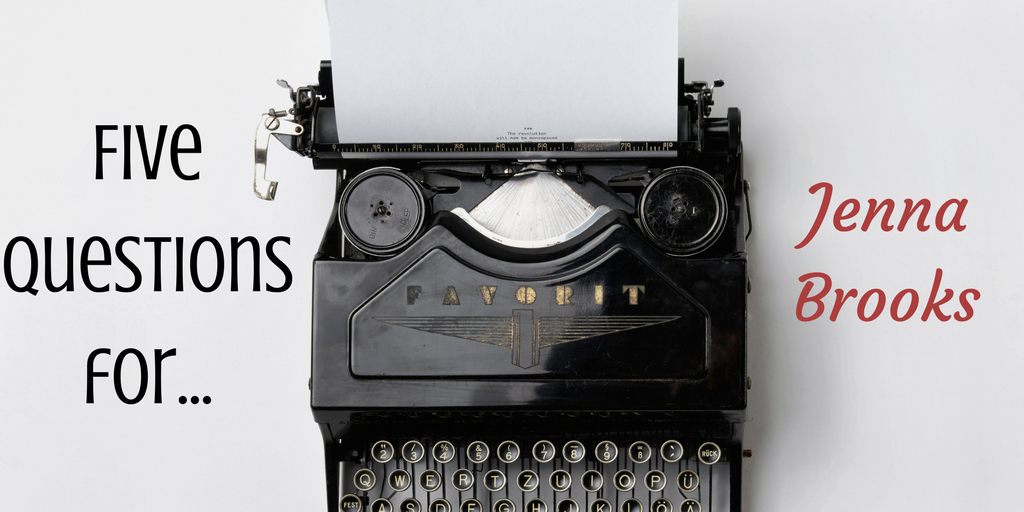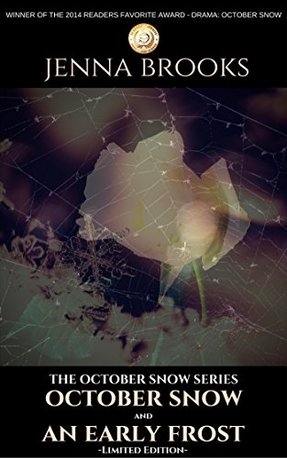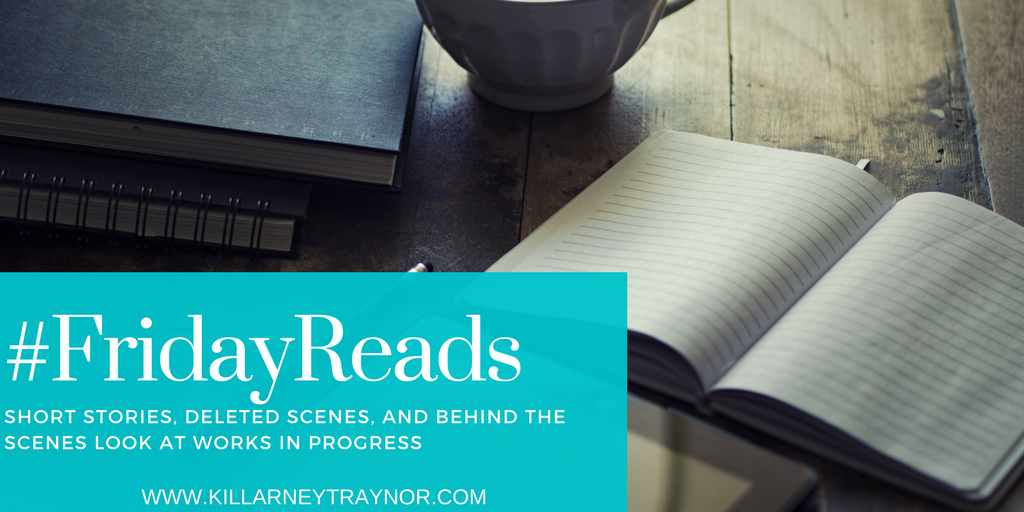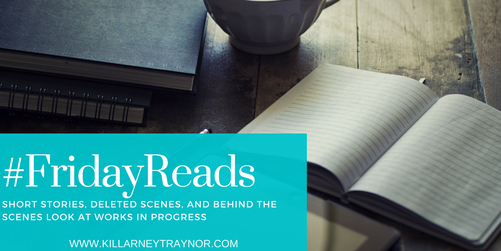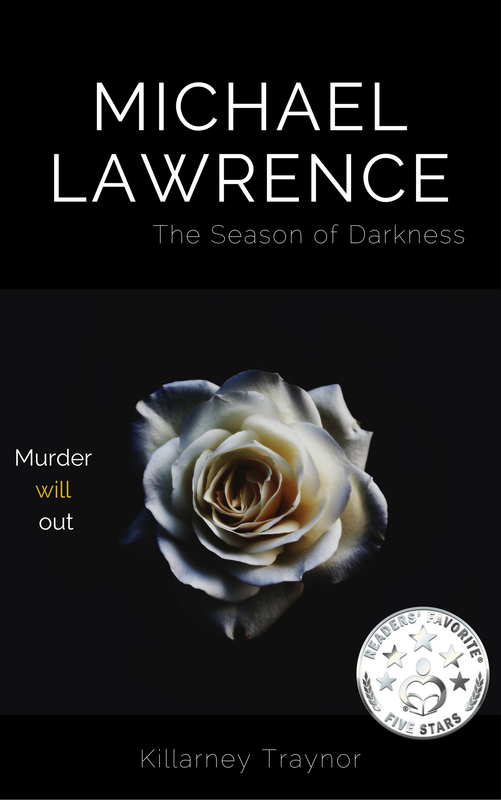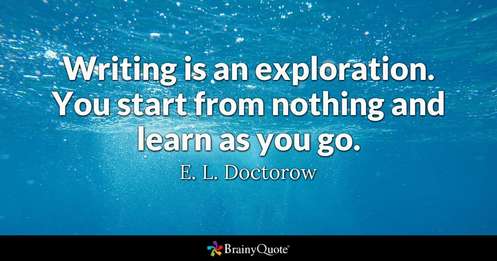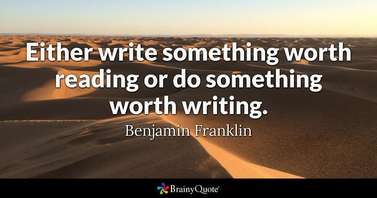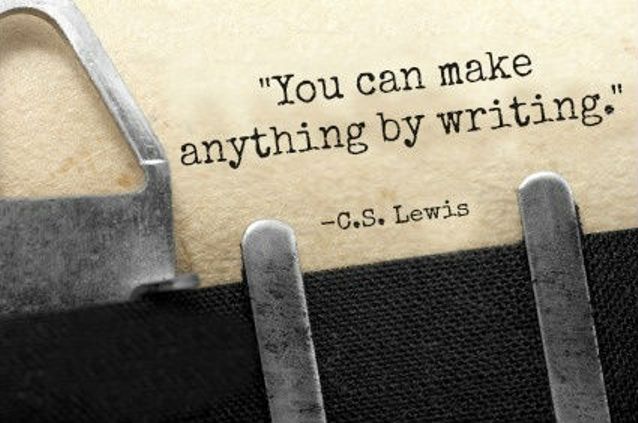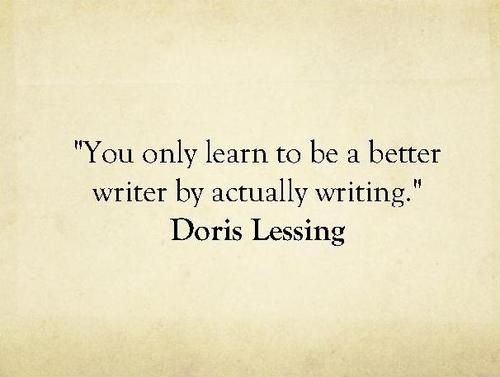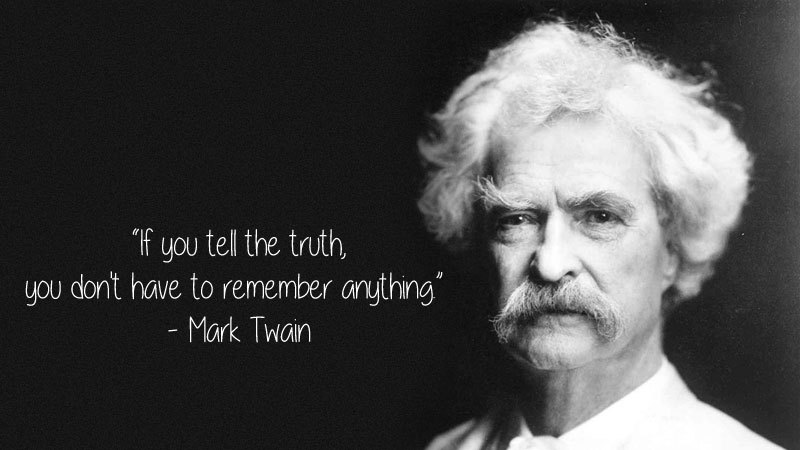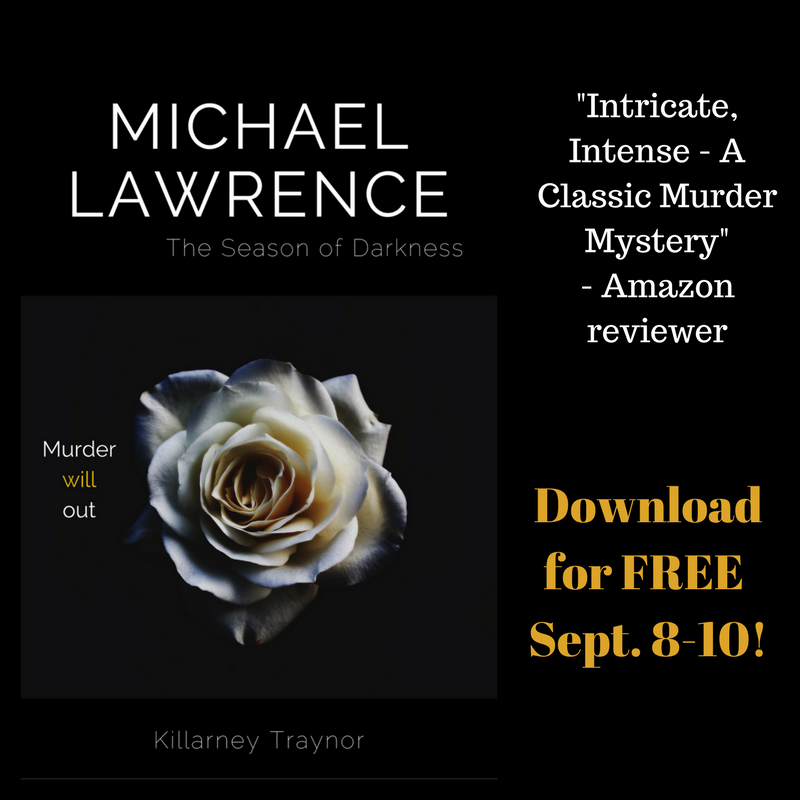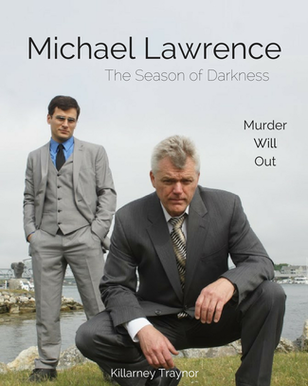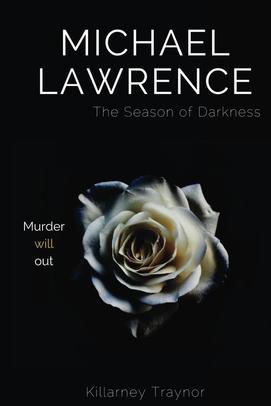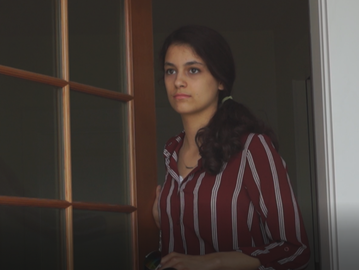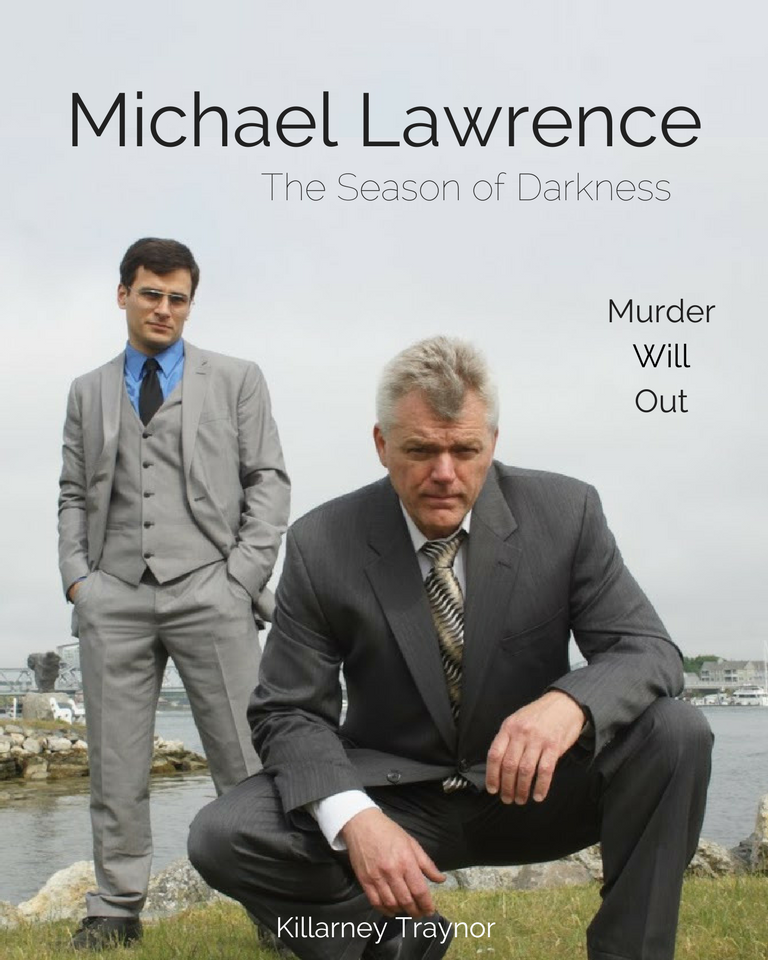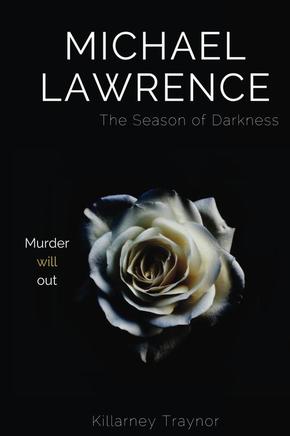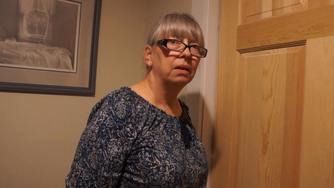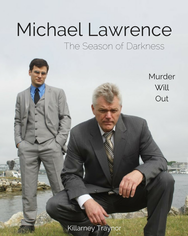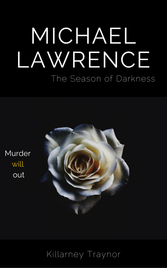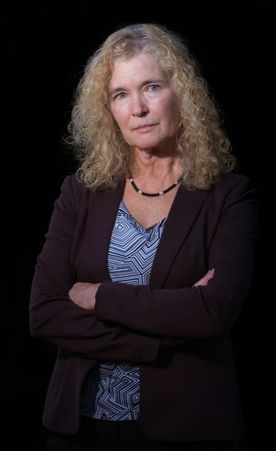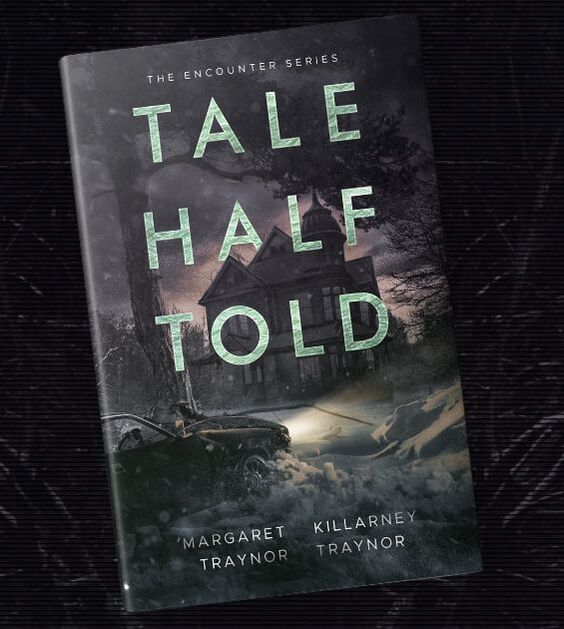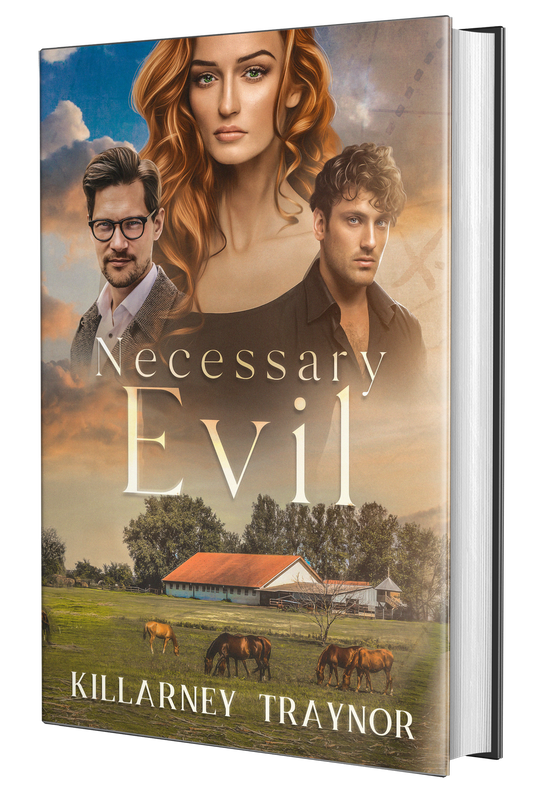|
In this new feature, we ask indie writers five very important questions about themselves and their work! Five Questions For... will appear on this blog every other Monday - be sure to sign up for the newsletter and never miss a great new author! Jenna Books is an award-winning novelist, editor, columnist, coach, and instructor. She writes psychological thrillers that focus on domestic violence and its shattering aftermath, with a special emphasis on family law and the court system. She talks to us here about her passion for writing. Be sure to check out her interview on the Late Night Live show on Narrow Street Films on April 25!!  1. I know when I write a book, I always have a particular person in mind as an audience. Who do you write for? I write to get my anger out. I write for me. I want people to open their eyes and look around before it’s too late, before they’re facing a situation and don’t know what to do about it. I have to admit, when you read my books, there’s a lot of high style venting. I think I just write so I don’t die of intestinal problems. 2. What made you angry? I worked as a divorce coach, with a specialization in domestic violence. One afternoon my client and I was threatened by her ex, threatening to run us down with his truck – revving his engines, screaming at us through his window. Not an active threat, but a visual. I got her into her car, sent her on her way, then turned to him and said, “Look, moron, I’m not your wife. If you kill me, you’re going to go to jail.” (I have no sense of self-preservation.) I was furious. I was driving home, shaking, and suddenly it occurred to me, “What if he had done it?” And that’s where October Snow was born. 3. Family is important! How does your family inspire and support your work? My son hasn’t even read my books! My daughter edits them, though. They are really supportive. When I told them I was quitting my job and getting a tiny apartment to write full time, they weren’t even surprised. They just said, “Hey, that’s great, Mom!” I think they’re used to my doing weird things. We are a really weird family. 4. Which author is you biggest influence? The apostle James. I’ve gotten more out of that little book than an entire library. He’s kind of like me, just bucking conventional wisdom. Paul’s pretty good, too. 5. Do you have any writing rituals to keep you motivation? I don’t even write from an outline – I just write when I’m in the mood. I always know what social message I want and I go from there. Though, as soon as I type ‘The End’, I sigh contentedly, I light a cigarette and pour myself a shot of amaretto. So that’s a ritual. Bonus Question! So you’ve written two books and two coaching guides. What’s next next? Next is book three, Meltdown. Jack’s back. That’s all I’m going to say. Anyone who’s read it will know what it means.
0 Comments
Previously published, but worth repeating.... Now with helpful illustrations! 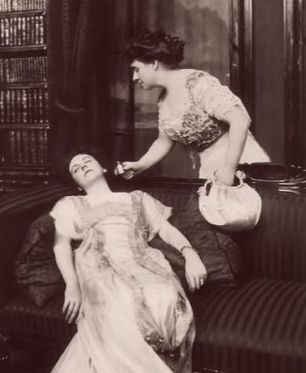 Writers are, by nature, sensitive beings, prone to sudden fainting spells and frequent temper-tantrums. Writers are, by nature, sensitive beings, prone to sudden fainting spells and frequent temper-tantrums. It is inevitable that every writer will, upon submitting their novel for editing, have that conversation. You know, the one where your editor slides your baby, the thick pile of pages that you've spent so many doting hours on, and utters those dreaded words: "I think you need to cut this scene." Cutting unnecessary scenes is normal, a natural part of the writing process, and one that should be faced with dignity, maturity, and calm acceptance. But since we're writers and artists, calm and dignity might be expecting a little much. It can help to know that, not only are we not alone, but there are actually five stages to receiving and accepting an edit. For the benefit of mankind, I outline them here, with illustrative dialog (which may or may not be autobiographical). Behold: the Five Stages of Editing Acceptance (or, How to Survive Your Mean Editor, with helpful illustrations...) 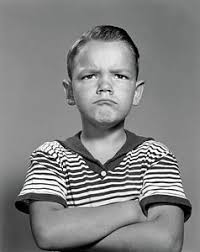 1. Denial The writer will resist the cut/edit/suggestion vehemently, to the point of self-delusion. "What are you talking about? This doesn't need to be cut. This is a perfectly gorgeous scene, so well written Shakespeare would have prostrated himself before my pen! PG Wodehouse would have given up and gone into drama. Shelley and Keats would rise from the dead just to praise me in verse! Yes, it's absolutely necessary. Why? Um, character development, of course. Yes, character development. No, I'm not making that up. Shorten it? Are you nuts? The main character finds a squirrel in her house - it takes twenty pages to describe that properly!" 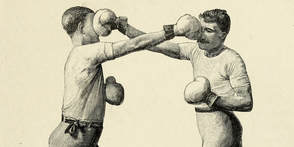 2. Anger On facing the editor's implacable insistence, the writer will often turn hostile. "Well, what do you know, anyway? I'm the writer - in this story, I'm the puppet master, the know-all, be-all and end-all. You just don't understand. Like everyone else, you can't just leave art alone - you have to try to destroy it. Why are we even friends? Yes, the squirrel is important! Do you hate squirrels or something? No, I will NOT keep my voice down. Yes, I will keep that scene, I will, I will, I will! You can't make me cut it. YOU ARE SO UNFAIR!" 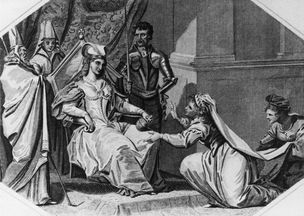 3. Bargaining Feeling helpless, the writer will then try to regain control of the situation. "All right, all right, fine! I'll consider it. How about I cut it back by about five pages. Seven? Ten... Ten, and I'll also cut the grocery store scene. Okay, okay, okay, final offer: I'll cut the squirrel scene by fifteen pages and the grocery store scene and toss in another romance scene to sweeten the deal, what do you say?... "Read it again and get back to you? If I do that, can I keep the squirrel scene?" 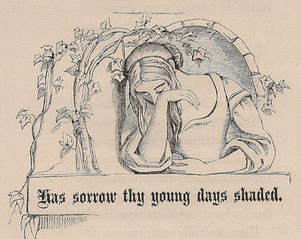 4. Depression Being forced to accept the authority of the editor, the writer will inevitably slump into self-recrimination and depression. "Yes. "Yes, I re-read it. You were right. It's horrible. It's stupid, a complete waste of time, ink, and paper. I can't believe I wrote this. Actually, I can. I'm the worst writer ever. This book make PS: I Love You look like a Pulitzer Prize Winner. I should never have learned to write. And what's worse, I ripped into you like... like.... "Well, that’s it. I quit. I'm turning in my keyboard. I'll throw myself on my pencil. Why am I even here? I'm a terrible writer, a terrible friend, a terrible person, and I need a double shot of Crown, like, right now." 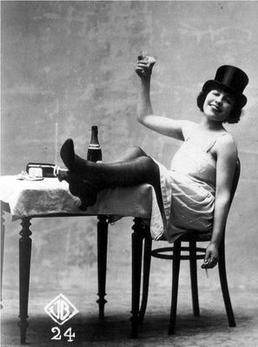 5. Acceptance Moving forward, the writer sees the wisdom in the suggestion and begins to rebuild their self-esteem - which will last until the next edit or critique. "Okay, okay, I've cut the scene altogether and you know what? The story flows so much better now! It isn't terrible at all! It's tight, it flows, and I am a genius! Oh, right, it was your idea, I know, but that's what editors are for, right? "Hey, you know, I was feeling so good, I actually added an epilogue. Remember the tangerine incident? Maybe you haven't gotten that far, but it's hilarious, so I expanded it into this cool little... "Oh, you read it? What did you think?... It's not trite. It's cute!... Cliche! Honestly, you make me so mad sometimes!" Ad nauseum. Writers: making the emotionally unstable look like stoics since the invention of the hieroglyphic. 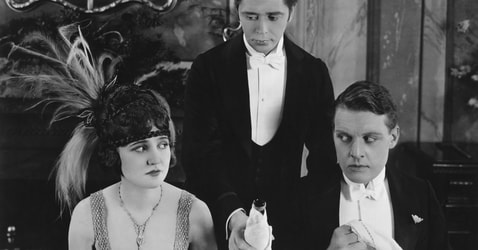 Your writing projects can be great sources of conversations at parties. They can, in turn, be causes of disillusionment. Every once in a while, I'll have a conversation that goes something like this (apologies to every unfortunate soul who got stuck standing next to me at a party!) New Acquaintance:
So, I hear that you're a writer. Do you make much money off your books? Me: (laughing) Good heavens, I'm lucky if I make anything at all! Acquaintance: Oh, all right, so you must have a deep, meaningful message to share with the world. Me: I guess. Acquaintance: What is that message? Me: Um... The world is a cool place with nice people in it? History is fun? Always take time to smell the roses? <Me thinking: Wow, that is so deep! Maybe I really am a philosopher!> Acquaintance: <thinking: That's about as deep as a Hallmark card.> So, you write to promote <names a cause>? Me: Well, I guess if it does, that's a good thing. Acquaintance: Oh, I see! Then you must do it for art? Me: Art? Golly, I'm not sure if what I do can be called art, but I'll take the compliment, thanks! Acquaintance: Right... So, uh.... why do you write? Me: Why do I write? That's very simple! It's because... Because... Uh... well, I guess because I like it. Acquaintance: You like it. Me: Yeah. Plus, I've been doing it so long I don't know what else to do, you know? Acquaintance: That's not terribly artsy. I thought all artists had deep philosophical thought or musings or... something. Anything. Even angst will do. Me: Yeah, I used to think so too. But angst is exhausting and kinda over-done, don't you find? Acquaintance: Oh, well, I guess... I'm sorry, why do you write again? Me: Because it's there. <awkward pause> Acquaintance: That's why you climb mountains. Me: You've obviously never written a book. It's much the same. Acquaintance: ...Okay, I'm going to go talk to your sister now. Me: I don't blame you. Have fun. 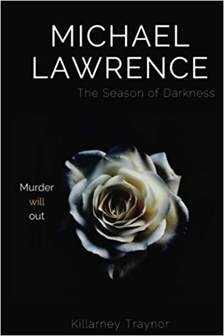 I've always been a bit of a DYI person. Not that I'm the type that makes my own cheese (though it's on my to-do list) or swaps out transmissions or anything intense like that. But when it comes to publishing and writing, I generally find myself trying to do everything. Sometimes I have great results. Sometimes it's more of a 'Lesson Learned' thing. Making my own cover for Michael Lawrence: the Season of Darkness was one of the latter. Don't get me wrong - I love this cover (the colors! the rose! the intrigue! Isn't it pretty?)! But over the course of the months, going to different live events, I got some feedback that made me realize that I have many things to learn about graphic design. Here are a few, which I now gladly share with you! 1: SIZING THE TYPE Intention: The Season of Darkness is intended as the start of a small series, so I made the main character's name big, as it's the title of the series. Result: Almost everyone has assumed that Michael Lawrence is the author. It's only when they squint that they see my name. Unlike Laura Holt's attempt to drum up business, putting a man's name on my book hasn't helped sales, alas! Conclusion: Make sure the author's name is large enough to see to deflect confusion. Also, when I re-do this cover, I'll probably be listing it as 'The Season of Darkness: a Michael Lawrence mystery'. 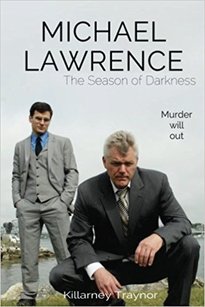 The Movie Tie-In Cover The Movie Tie-In Cover 2. THE ROSE Intention: In the language of flowers, the white rose stands for marriage (among other things) and I thought this rose, threatened by encroaching darkness and shadow, represented Michael's marriage problems pretty well. #deepermeaning, am I right? Result: Turns out, when most people see a rose, they think 'romance' - regardless of color (several would-be readers thought fantasy romance when they saw my rose). In contrast, the movie tie-in cover, with the two leads looking like British detectives having a stressful day, was instantly recognizable as what it was: an American murder mystery. Conclusion: Don't try to be too clever with your imagery. If the book looks like a romance novel or a gothic adventure, mystery enthusiasts will not bite. (Alas, my poor, misunderstood rose!) 3: THE TAG-LINE Intention: "Murder Will Out' is an idiom meaning 'murder cannot remain undetected'. I'd heard this phrase used over and over again in the mysteries I read and watched and it's the perfect tag for this particular case for reasons that I can't get into without spoilers. Plus, I knew it was English, which, as I was going for the feel of a British murder mystery, only added to its appeal. Result: Turns out, whatever books or movies I was enjoying aren't commonly known. This phrase, which is of unknown origin but sometimes attributed to Chaucer, made more people question me than the numbers 1 and 2 combined. No one knew what it meant. As a result, no one was intrigued by it. Conclusion: Run your tag line by a few people before you commit to them. It'll save you a lot of explanations in the long run. In Summary, creating your own cover is a ton of fun and well-worth the time and effort. But do yourself a favor: show it to a few of your friends, neighbors, co-workers, or innocent passersby before you commit. You may be saving yourself a lot of explanations in the future!
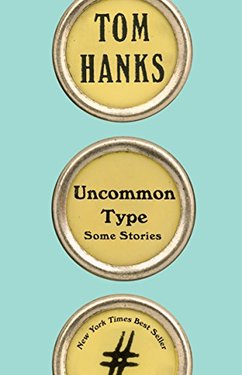 A World War 2 veteran reflects on his past one Christmas Eve. A suburban single-mom moves into a new neighborhood and finds herself dodging the attentions of the eccentric science teacher next door. A young boy takes his first flight in his mother's boyfriend's plane. An aspiring actress in 1950s New York finds help from an unusual source. A man who has everything finds himself in love with the one woman he can never have - or can he? Uncommon Type is a collection of 17 short stories by Tom Hanks, all of which feature, in one way or another, a typewriter. Book-ended (see what I did there?) with stories of a tight-knit if eccentric group of friends, Hanks' stories are alternately tragic and hilarious, folksy and edgy, hopeful and heartbreaking, but always human. In fact, that's probably the best thing you can say about this book: you put it down feeling that, in some way, the world is a little warmer and a little more home. Not all of the stories come off perfectly - it feels in some that Hanks is stretching his literary muscles a little beyond their capacity - but that being said, its been a while since I've read a new book that made me feel like the human race was all right. I could use a few more books like this one. (Note to clean-read enthusiasts like myself, there are a few adult scenarios in these stories.) Every other Friday, I'll showcase a snippet from either a work in progress or an old manuscript, a new short story, or random poem or scene from a never-finished book. If you like what you read, be sure to leave a comment below! This snippet comes from a story I began back in 2011. Enjoy!  Because it was Friday, the restaurant was crowded. The bar was tight with sports enthusiasts who alternately cheered and jeered as their teams scored and lost ground. On the peripheral, all of the tables were taken, most packed to the limit and everyone seemed in a boisterous and jovial mood. The wait staff hustled and the sounds of furious activity emanated from the kitchen each time the doors swung open. The line of waiting patrons was stretched from the anxious hostess’ desk and into the tiny waiting area where it looped around and went out the door into the foyer and then onto the well-lit sidewalk. It was much quieter out here. People stood in little groups, hands in pockets, shuffling their feet, checking cell phones, and looking with envy at those who had the luxury of waiting inside. Had it been Nicole Carson’s choice tonight, she would have seen the line and driven right on past. She did not relish in the happy noise and over-warm friendly atmosphere. She much preferred the quiet of, say, her favorite Chinese food restaurant, or the River-Side Catch during the off hours. These places she could be sure of clean, healthy food, a quiet atmosphere, and a menu with which she was already familiar. And standing outside on a chilly March night in the New England weather was not her idea of a fun time, as healthful an activity as some may argue it was. But, as it was not her choice and as her sister, Kat, had faithfully promised to her that she would call ahead for seating, Nicole found herself pushing her way through the crowded waiting space to the hostess station. She heard snatches of conversation as she wound her way through the little groups. “… so then I said, ‘What the h--- do you mean, additional fees?’ And he was, like, ‘When you signed….” “…My feet are sooo tired. I worked 14 hours in the store today and that witch, Hazel…” “…and just when you thought the movie was over, right, bam! There was this explosion. I nearly died…” “…I mean, I’m more than due for the raise. I work harder than any one else and when that Deutsch thing was going down, I was the one who…” “We should have just gone across the street.” “But you hate Indian food.” “True, but I hate starving to death more…” “How many?” The harassed hostess with the deteriorating makeup pulled herself away from a lively discussion of table assignments with three disgruntled waitresses to face Nicole. She spoke the words with the lifeless intonation of a woman who had nothing left to live for, a living martyr who rather resented being plagued as she was. She took a clip-board with a frighteningly long list of names on it and waited. “Two.” “Name?” “Carson. We called ahead.” The hostess stopped writing and checked her list. “Katherine Carson?” “That’s it.” The hostess suppressed a grimace and viciously scribbled out the CARS that she had scrawled at the bottom of the list. She looked about and said, “I’m sorry, it’ll still be another few minutes.” “No problem.” The hostess turned away and Nicole had to say, “A buzzer?” Annoyed, the hostess found one and thrust it into her hands, then turned to play peacemaker. Nicole found herself being sucked back into the crowd. Hemmed in on all sides by bodies, voices, and odors, claustrophobia was not long in coming. She fought her way through and found herself outside again. This time, the crisp air was a blessing and she took a few, deep breaths to steady herself. Her lungs felt revived and her whole outlook brightened. After all, it wasn’t that cold out. The table wouldn’t be too long in coming, this restaurant chain had a very good reputation, and she would have a good conversation with her sister, Kat, whom she hadn’t seen in a week. Things would be good. I've decided to start a new feature for Fridays - Every other Friday, I'll showcase a snippet from either a work in progress or an old manuscript, a new short story, or random poem or scene from a never-finished book. If you like what you read, be sure to leave a comment below! Today's #FridayReads is from a work-in-progress tentatively called Jenny Goonight. It's a western about a travel-worn missionary woman who goes to visit her uncle, famed Civil War reporter Matthew Goodnight, in the town of Evanston, only to find her uncle embroiled in a power struggle with Varina Evans, wife of the town's founder. But Matthew isn't the man Jenny thought she knew and things go from bad to worse when a body turns up and Jenny finds herself accused of the killing. In this scene, Varina Evans hears some disturbing news and turns to her son, the quick tempered John Henry, for advice. 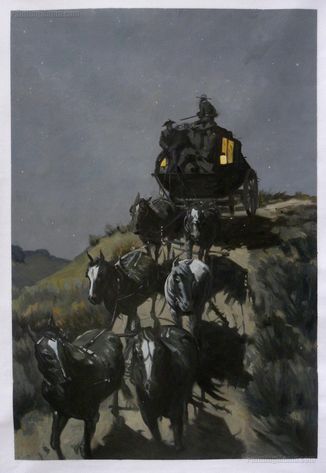 Chapter: Varina Lee Evans stood in a warm glow of the light, watching as the buckboard disappeared into the gathering darkness. Elizabeth and Josie Walsh, the wife and daughter of the general store owner, had come to pay a social call. At least, that was the reason Josie understood for their coming and it was the excuse that both Varina and Elizabeth would use, should anyone ask. Elizabeth had come for advice, advice that she could ask of neither the Pastor nor from her husband, Elliot, and she was not Catholic that she could confide in a priest. That left, very naturally to her mind, the Widow Evans. Varina Evans and Elizabeth Walsh were not what people might refer to as bosom friends. In fact, there was no one in town that could claim that relationship with Varina, unless it was her daughter-in-law, Helen. It was not close-friendship that brought Elizabeth to Varina, then, but a sort of fealty. The Evans were the founders of Evanston, the owners of the largest spread, and, according to most, the de facto rulers of the town, a story that Varina and both of her sons vehemently denied. But distance themselves as they might, people still thought of them as the chief family in town and when there was a civic problem, the Evans were usually the first turned to. Darkness closed around the buckboard and the rattling sound faded as the two women drove back to town. Varina thought, It wasn’t too long ago when such a short journey would have been too dangerous for two unarmed women. How fast things have changed. Now the dangers were different. From somewhere in the house, a door slammed heavily and she heard her son’s voice echoing through the rooms. John Henry had returned and from the sound of his voice, he’d seen the editorial, too. She left the relative peace of the darkened porch and went inside. The Evans mansion, as it was called by the locals, was an enormous, rambling structure that combined the practical needs of a ranch headquarters with the style of a Southern plantation house. The over-sized rooms were decorated with rich wall paper and plush carpeting, ornate candelabras, and heavy furniture. There was a piano in the parlor and a balcony outside her bedroom. Her deceased husband John had done his best, in a heavy-handed fashion, to provide her with a house that was like the one she’d grown up in. He'd succeeded only in reminding her how different life out west was from the one she’d known. John Henry was in the living room, standing before the fire place, rubbing his chin. He was dusty and grimy from the road, and the full day and he looked as though he’d love to put his fist through the wall. Trigger Olsen, one of their senior hands, was present too, running his hat through his hands. She stopped in the doorway and nodded to Trigger. “Good evening, Trigger,” she said. “You two are working late tonight.” “Yes, ma’am.” Trigger bobbed his head, glancing at John Henry as he did so. “We, uh, ran into some trouble in the north pasture.” John Henry looked sharply at him. “Well,” Varina said evenly, “no matter. We kept dinner warm for you. It’s waiting in the kitchen.” Trigger waited for John Henry’s nod before scampering off. He was too well acquainted with the Evans to want to be in the middle of a family discussion. When he was gone, Varina went and sat in the armchair, lowering herself carefully and smoothing her skirts as she did. John Henry kept his eyes on the fire place. The air chilled at night, so a small fire was always started at the end of the day. With Helen expecting in a few short weeks, the extra precaution was considered even more necessary. When John Henry didn’t speak, Varina did. “The north pasture?” she asked. John Henry seized the poker and stabbed at the logs. “Broken fence again,” he muttered. “We patched it. Thomas around?” “He’s upstairs, with Helen.” She waited another moment, then said, “I understand you paid a call on Matthew Goodnight this afternoon.” With a growl, John Henry threw the poker back into the stand and began to stride about the floor impatiently. “According to Josie Walsh, it didn’t go well,” Varina ventured. “Josie Walsh!” he said, with disdain. “What does she know about anything?” “She was under the impression that someone pulled a gun today, John Henry. That someone pulled a gun on you after you attacked Matthew Goodnight.” He stopped in front of her. “I couldn’t let him get away with printing that article,” he said. “Not when it’ll affect Thomas. You know it’ll hurt his chances in the election – it’ll hurt his chances with anything.” She looked up at him levelly. It was moments like these that he looked most like his father – a big man. Too big, she sometimes thought. “And do you think he’ll print a retraction now?” she asked, ice in her tone. He hesitated, then turned away, only just refraining from swearing. “We can’t just let him do this!” he muttered through gritted teeth and his fist came down on the mantelpiece, making the china dolls dance. “Something must be done!” Varina Evans waited a few moments. In dealing with John Henry, she found that some of the techniques she employed on her husband were most effective. No one would have accused the late John Thomas Evans of being a whipped man, but then few knew Varina very well. And though the son was very much like the father, there was one difference: John Henry was much more bullheaded than John and try as she might, she could only influence, not control. He is much more like me than his father in that respect, she thought. He’s his own man. I can only do so much with him. He is like his father – but he is not John. She waited until she was ready, then said, “Elizabeth Walsh was here today.” John Henry turned, frowning. She watched his hands flex. “What did she want?” he asked. Varina drew in a breath and looked up at him steadily. “She came to tell me what I already knew. You’re right, John Henry. We have got to do something about Matthew Goodnight.” LIKE WHAT YOU'VE READ? DROP ME A NOTE AND LET ME KNOW!
Goodreads Book GiveawayTale Half Toldby Killarney TraynorGiveaway ends October 31, 2017. See the giveaway details at Goodreads. 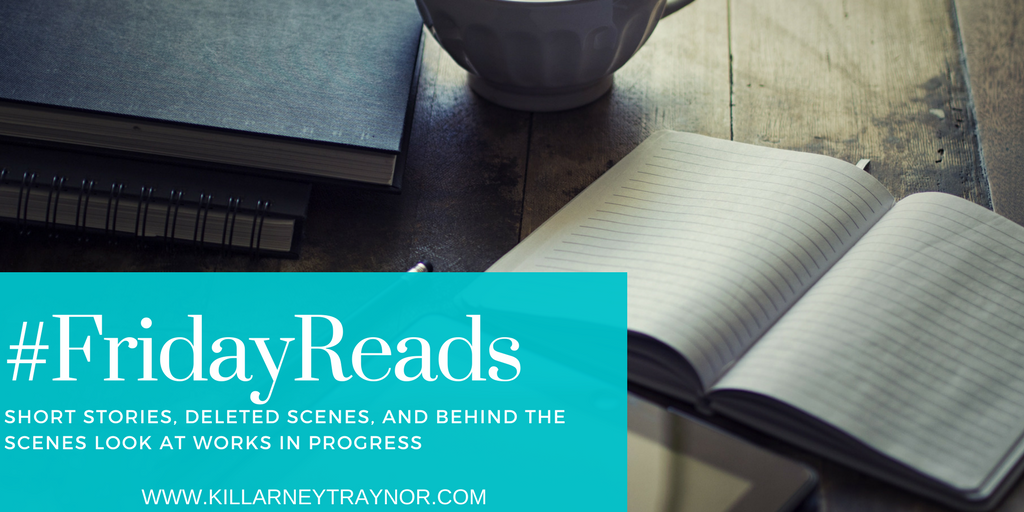
I've decided to start a new feature for Fridays - Every other Friday, I'll showcase a snippet from either a work in progress or an old manuscript, a new short story, or random poem or scene from a never-finished book. If you like what you read, be sure to leave a comment below!
Today's #FridayReads is from a work-in-progress tentatively called The Tour Guide. It's a romantic comedy about Gwen, a young woman who has never been to Ireland who is forced by circumstance to lead a tour group there. Naturally, all sorts of calamities and comedic problems ensue. In re-doing the manuscript, this scene, in which two 60+ travelers meet their tour guide for the first time, was cut for brevity, but I still rather like it. Enjoy! 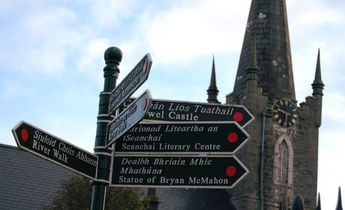
Deleted Scene from The Tour Guide, by Killarney Traynor
The tour guide from Chambers Adventure Tours was not, as Emily had supposed, a charming old Irish gentleman, but instead a polished, somewhat nervous young woman with blond hair and a Boston accent. “Welcome to Ireland!” the young woman said. “I hope you had a good flight!” “Cead mile failte!” Emily replied, holding out her hand to shake. The young tour guide’s mouth dropped open and for a moment, there was a very awkward pause, broken only when Emily spoke. “That means, ‘a hundred thousand greetings’,” she said kindly. “It’s an old Irish phrase I picked up somewhere.” The guide’s face cleared and she nodded in understanding. “Oh, yes, of course,” she said. “Well, the same back at you, I’m sure.” Emily gave Rose a look as though to say, What sort of a tour guide did they send us? As though in answer to the question, the young woman introduced herself as Gwen Chambers, took their names, and then gestured them over to a lounge area. “I’m afraid there is a bit of a wait before we get to our hotel,” she explained. “We’ve a few more planes to greet, but I think you’ll find this area comfortable.” Rose didn’t mind a break between bus and plane and at Emily’s suggestion they got coffee and bagels at one of the little cafes. “What kind of a tour guide did they give us that doesn’t even know that phrase?” Rose muttered as Emily was carefully counting out some Euros. “Even I know it from greeting cards.” Emily gave her a side long look as she handed the coins to the girl behind the counter. “You didn’t recognize her name?” “I don’t even remember her name – it’s too early in the morning.” “Gwen Chambers,” Emily said. “They didn’t just send us a tour guide on this tour – they sent us the boss’s daughter. Now, why do you suppose that is?” It was an interesting question and one that kept them occupied during the hour wait for their departure by bus. Three more planes arrived in that time and the little lounge was soon crowded with half-asleep Americans in t-shirts, dragging over-sized suitcases with Chambers’ luggage tags dangling from the handles. Eventually, Gwen came over, smiling brightly over her clip-board. “Well, if you are all ready,” she said. “Shall we go to our hotel?” No one objected and all filed after her, dragging bags and sipping from paper mugs. When they got outside, there was a bit of a hold up as Gwen searched for their bus among the dozens parked outside, but soon enough came trotting back to them, her smile firmly in place, her high-heel shoes clacking on the pavement. “Just a few more steps this ways,” she said brightly. “Just follow Tour Guide Barbie,” one of the men behind Rose muttered and immediately a woman protested, “Oh, Hal!” in an annoyed tone. The driver was a stocky, handsome man in a leather jacket. He stood by the door, helping people with the first step while Gwen ran back and forth among the line, checking and double checking to see if they’d forgotten anyone. Rose and Emily settled into one of the middle rows and Emily leaned over to whisper, “He’s a cute one, isn’t he?” “Who, the driver?” “Well, I wasn’t talking about Hal.” Emily looked over as Gwen, the tour guide, popped up in front to see if everyone was settled. “And she’s very pretty.” “Don’t you go match-making,” Rose warned. “It never works out.” “Can’t blame a girl for trying,” Emily said. “I just like seeing people happy. Anyway, there’s not much I can do for the pair of them, except sit back and watch the fireworks.” As she said this, the driver came in, brushing by Gwen as he slipped into his seat. When she turned to give him a cool stare, the man just smirked at her. “Oh yes,” Emily said with satisfaction. “This is going to be a fun trip.” Goodreads Book GiveawayTale Half Toldby Killarney TraynorGiveaway ends October 31, 2017. See the giveaway details at Goodreads. 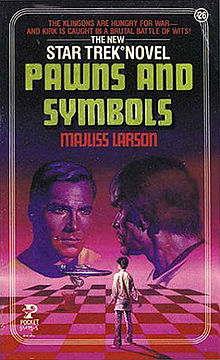 Synopsis: The Enterprise is called to Sherman's Planet, where agricultural scientist Jean Czerny is adapting a new quadrotriticale seed (The Trouble with Tribbles, anyone?). However, by the time they arrive, Jean has been taken captive by Commander Kang, a ruthless Klingon who will do anything to get the new seed to his starving worlds, including using force on the scientist. But Jean is not all that she seems and the situation is not a simple case of kidnapping. Jean is forced to live among the Klingons, working to end the famine that threatens their empire. But even as she adapts to her brutal new surroundings, new dangers and intrigues threaten to overwhelm her and her newly adopted mission of mercy. Will she ever see the Federation again? Pawns and Symbols is... frankly, a weird entry in the series. It reads more like a historical romance book than a Star Trek episode: an intelligent young woman is captured by a powerful, but still attractive half-savage and uses both her brains and her body to survive the encounter, learning, as she does, that the man and the culture are not quite as bad as she first thought. It reminded me a lot of the 1919 novel The Sheik, and that's no compliment. The Sheik, the story a man who captures and brutalizes a woman who eventually falls in love with him, was a sensation in it's time, spawning a popular movie and sequel. In Pawns, after his attempt to rape Jean is interrupted, Kang forces her into a sort of concubine role and she is used and abused throughout the rest of the book, beaten quite severely at times. I may be oversensitive, but I found this to be an uncomfortable read. Abusive characters like the Sheik and Kang are next to impossible to redeem and encouraging fantasies about them and excusing their behavior is a dangerous game to play. Anyhoo, preaching aside, Kirk and crew are hardly in the book at all, though they are well written when they appear (there's an odd episode with them in the middle book that seems more like a short story than a necessary part of the novel). The author goes into great detail about the Klingon Empire, but while she spends a lot of time on Jean and Kang, she leaves her other new characters short on personality and backstory. In sum, the book feels more like better-than-most fan-fiction written by a woman who had a lot of fantasies about Klingons (in particular, the commander from Day of the Dove) and probably should talk to someone about that. Not recommended: skip this and go see next week's theater showings of Wrath of Khan instead. Get Michael Lawrence while it's free!This week leading up to the June 23rd premiere of Michael Lawrence: The Season of Darkness, we're highlighting characters from the movie. Try to guess who-dunnit! 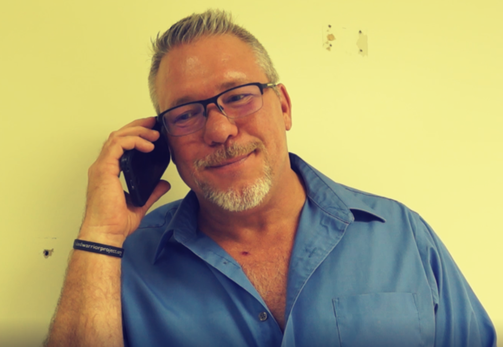 Name: Dr. Klugman Position: Coroner Category: Investigator Played By: Robb Buckland (Excerpt from the book) The coroner was sitting on one of the five chairs that lined the wall, a clipboard in hand. “Lawrence!” he called, when Lawrence lifted his head from his examination. “You look like something the cat dragged in.” Dr. Klugman had worked in the state coroner’s office almost as long as Lawrence had been a cop and his signature caustic wit was legendary among his peers. He was a big man, with a shelf full of awards achieved through various martial arts competitions. He was thorough, competent, and unflappable, though his humor was not always in the best of taste. Lawrence often thought that his tactless front was Klugman’s way of keeping sane in what had to be an emotionally trying job. Lawrence nodded wearily and rose to his feet. “I feel like it, too.” He gestured. “What have we got?” “A dead woman.” “I can see that.” Klugman grinned, then turned to the victim, placing his hands on his widespread knees. “It’s impossible to determine what she died of here, but whatever it was, it wasn’t a pleasant way to go. You can see here, where her back is arched and the distension of the jaw line. Horrendous agony.” He grinned when Lawrence shuddered. “We are feeling skittish today..” Robb Buckland is an actor, stuntman, martial artist, and Army Veteran. He's a veteran of over 40 years in martial arts, holds master level in multiple styles, has been awarded the title Kyoshi (teacher of teachers), and his expertise has lead to numerous film, TV, and magazine appearances. He founded Fearless Family Martial Arts and directs a stunt team for area film makers. He has also appeared in Narrow Street Films' Not That Guy and The Man Who Wasn't Tex Magru. Get Michael Lawrence: the Season of Darkness
|
The BlogWelcome to Categories
All
|
Copyright © Killarney Traynor
All Rights Reserved.
No part of this website may be reproduced without
the Owner's express consent. [Backlinks allowed.]
All Rights Reserved.
No part of this website may be reproduced without
the Owner's express consent. [Backlinks allowed.]

